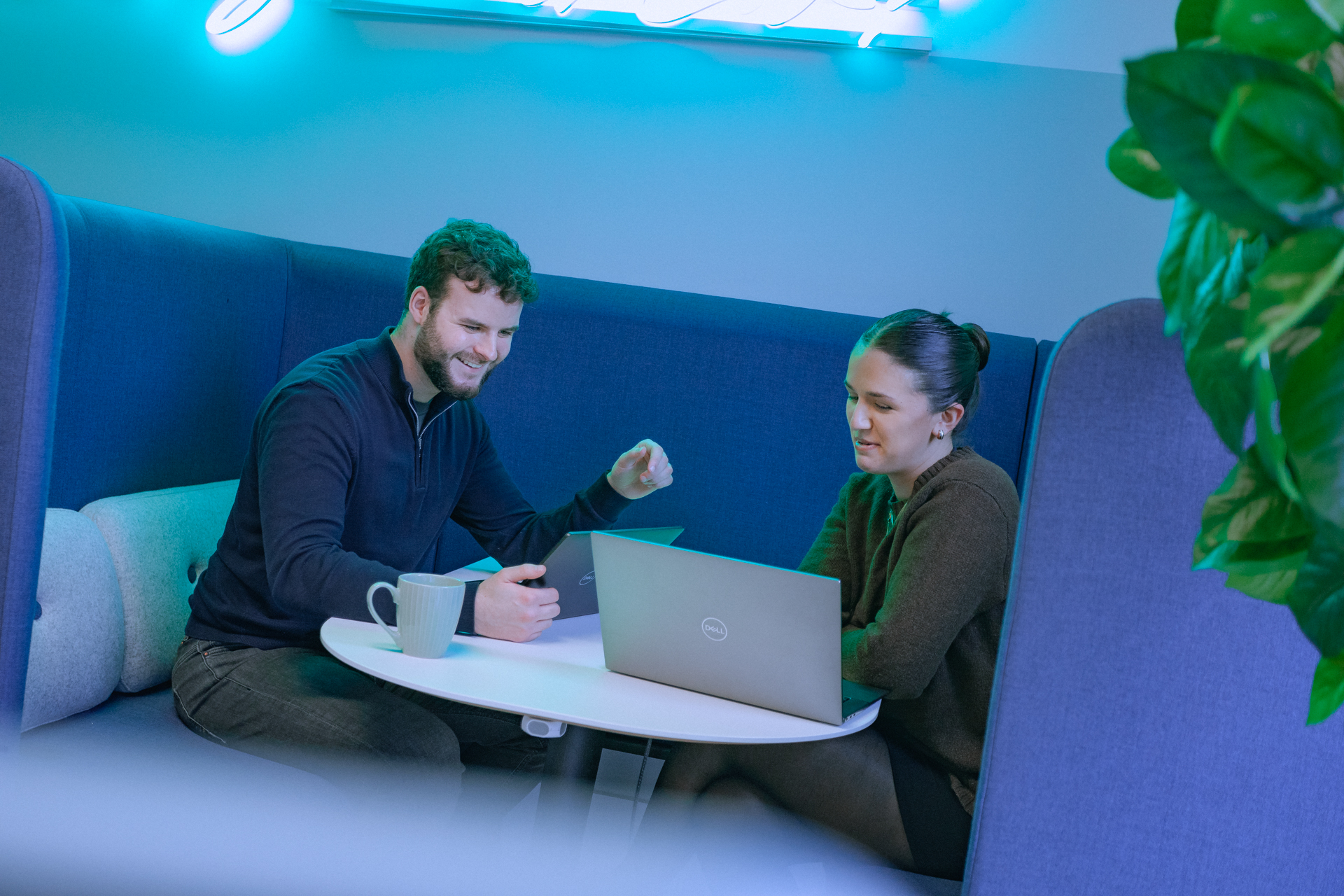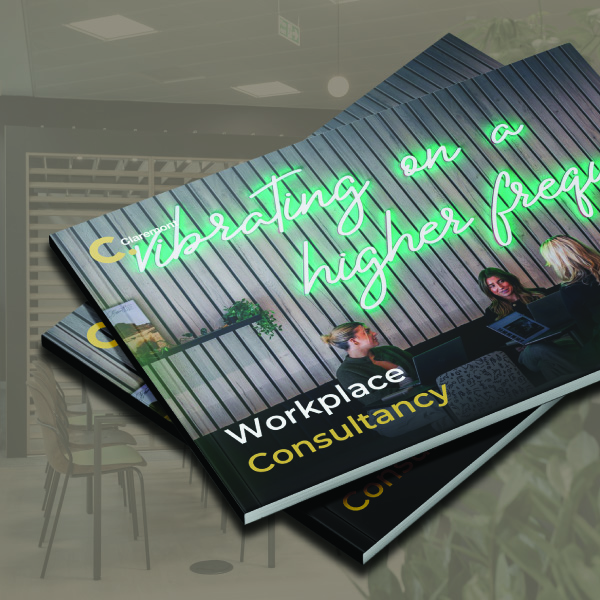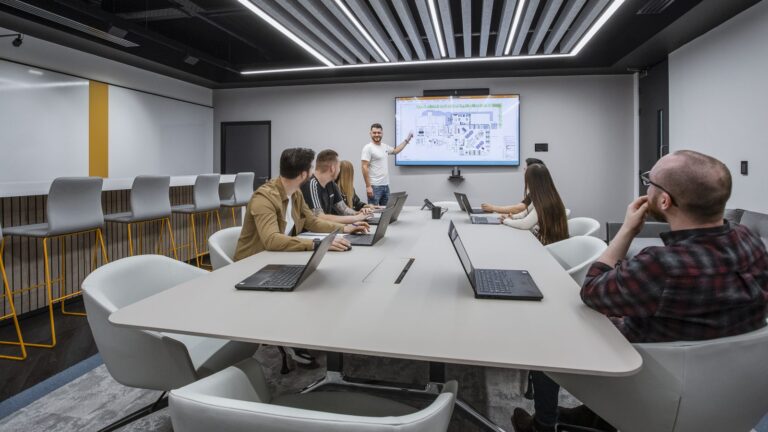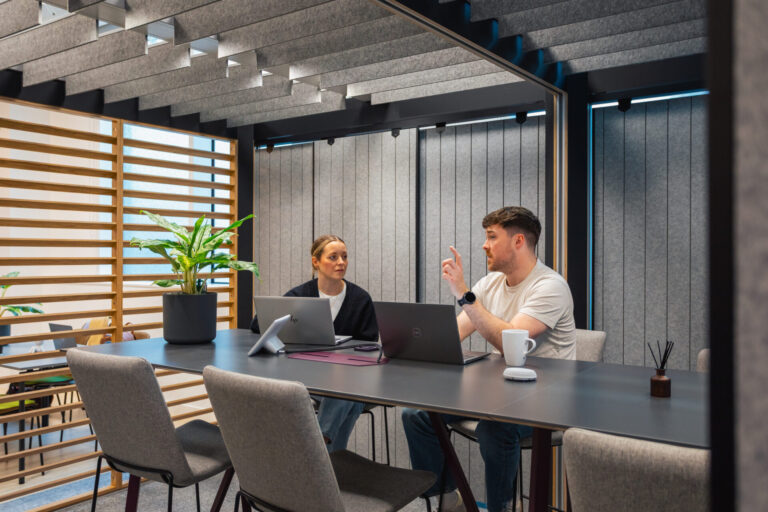
Workplace Consultancy trends in 2025
Date
7 May 2025
Read length
5 min
The way we work is constantly evolving. As businesses look to stay competitive, and people seek more purpose-driven work experiences, workplace consultancy (WPC) is proving essential in helping organisations keep up with their colleagues’ needs. But what exactly is driving these changes in 2025, and how can office design help to lead the way?
Workplace consultancy covers all aspects of people, place, culture and technology. It’s more than just optimising space within a floorplate, it’s about aligning organisational goals with employee needs to create workplaces that work for everyone.
In this blog, we’ll explore the biggest workplace consultancy trends we’re seeing in our projects, from hybrid models and AI, to designing with purpose for multiple generations.
Rethinking the role of the office: Hybrid work models and flexibility
The traditional office has been redefined, it’s no longer a sea of desks, private offices, and meeting rooms. With hybrid working as the norm, organisations need to design spaces to reflect this flexibility. Our findings in our workplace consultancy projects are reinforcing the need for this to continue, despite the growing number of companies who are mandating office attendance. Data from our surveys since the start of 2024 shows that the average number of days people come into the office is 2 days per week (33%), with only 7% coming into the office 5 days per week. Employees desire the flexibility that hybrid working can offer, and want their office spaces to reflect this; balancing collaborative zones with quiet areas to support focused work, social connection, and wellbeing. The office is no longer just a place to work, but a destination for creativity, culture, and community.#
The Destination Office
At Claremont we’ve been the trailblazers of the Destination Office. Ultimately it is about creating a workplace people want to come to. Many of our workplace consultancy clients are looking for this exact solution. They want a destination that offers more than their home office. We’ve noticed a shift in behaviour whereby people see the office as a place to go to collaborate and socialise with colleagues. In addition to this, wellness spaces, cafés, libraries, and gyms are all seen as additional perks that the office can provide. We’ve seen first-hand how this shift is driving demand for campus-style environments, and Destination Buildings that support connection, inspiration and wellbeing.
Employee wellbeing and mental health
Employee wellbeing remains one of the key workplace consultancy trends we have found in our recent projects. With concerns ranging from office temperature and lighting, to multifaith spaces and accessibility.
Data from our support index tool highlights that “facilities to support your health and wellbeing” are under supported, with an average score of -59 across our surveys from 2024-now. These issues can be resolved through well considered designs; from biophilia and natural light, to ergonomic furniture and quiet zones, office environments can be created to support mental health and reduce stress. Post occupancy, we’ve seen the support index score for “Facilities to support your health and wellbeing”, increase 62 points, to +3.
Workplace consultancy plays a vital role in listening to employees concerns, and then guiding employers to understand their needs, ensuring their best talent feels supported and can perform at their best.
DIBE (Diversity, Equity, Belonging & Inclusion)
A diverse workforce requires inclusive spaces. DIBE is another of our key workplace consultancy trends, and has been gaining momentum among colleagues in our engagement activities year on year. Our workplace consultancy team run DIBE specific workshops with diversity and inclusion representatives, alongside our in-house workplace psychologist. This ensures that all voices and opinions are heard. People want to see environments where everyone feels they belong, regardless of background, gender, age or ability. This translates to accessible design, prayer rooms, gender-neutral facilities, and spaces that cater to neurodiversity.
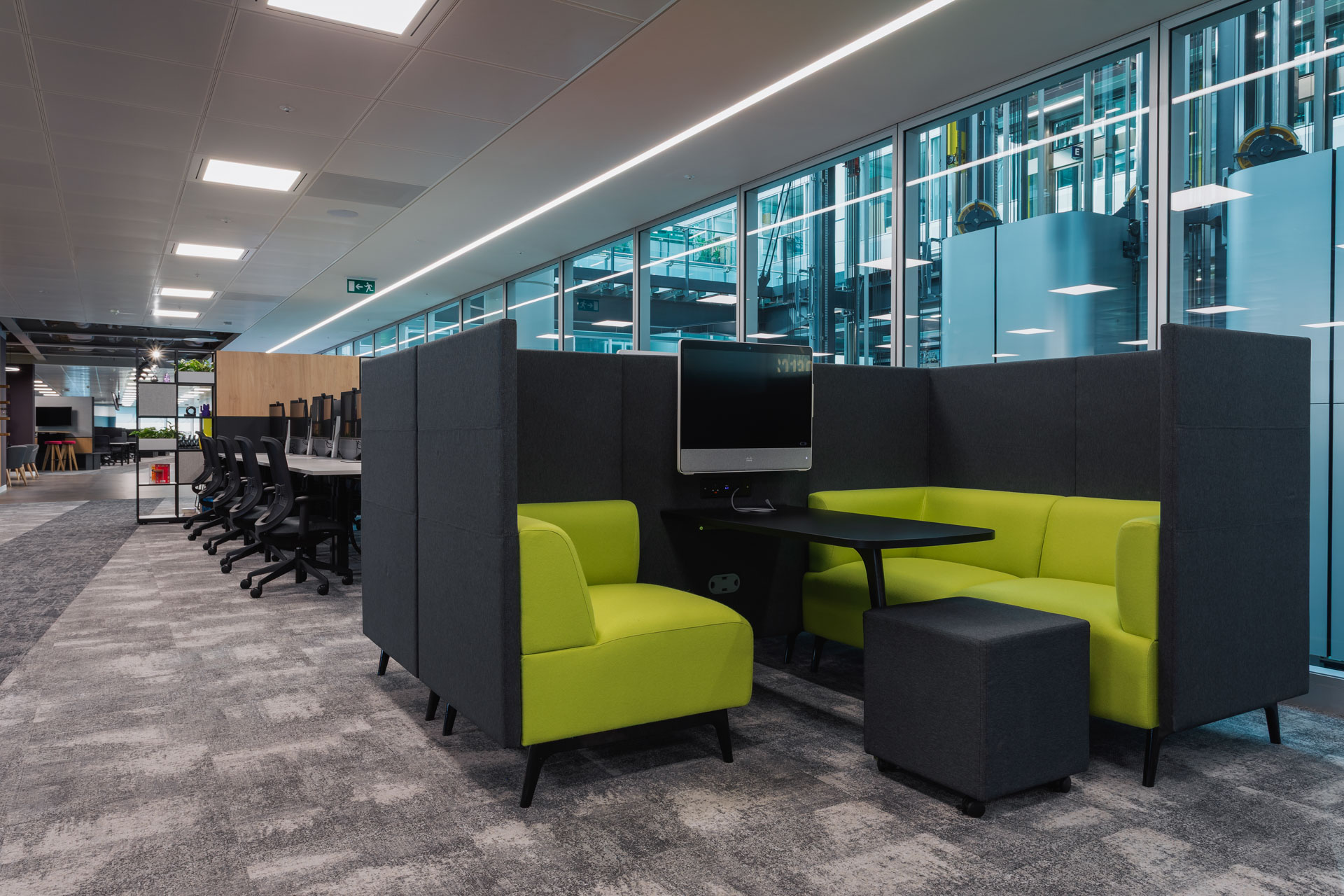
Designing for diverse generations
Workplaces today host up to five generations under one roof, each with different work styles and expectations. From Gen Z to Baby Boomers, our team of workplace consultants always consider the impact of generational differences. Often we find that those under the age of 42 are more likely to desire improvements in technology and informal collaboration spaces, compared to those over 42 who are more likely to have concerns around office etiquettes and noise levels within the office. Flexibility, choice, and adaptability are key, allowing individuals to work in the way that suits them best.
Gen Z is reshaping the workforce
Gen Z can bring fresh perspectives to the workplace, but they can have high expectations. Data from the Institute of Internal Communication suggests that Gen Z (those born between the years 1997 to 2012) currently make up 39% of the workforce. That figure jumps to 70% by 2030. They value authenticity, and want to work for employers who care about social impact.
Our workplace consultancy research is seeing these key trends becoming more important; data from our recent surveys shows that 100% of Gen Z see “environmental awareness” and “facilities to support your health and wellbeing” as important. 40% see “facilities to support your health and wellbeing” as extremely important, and 33% see “environmental awareness” as very important.
Workplace designs need to reflect this, or risk losing the support of the masses. Spaces for flexible work, sustainable finishes and fit out, and digital tools to streamline work processes should be at the heart of the design, whilst still providing spaces for traditional desking and collaboration to allow these individuals to grow early in their careers.
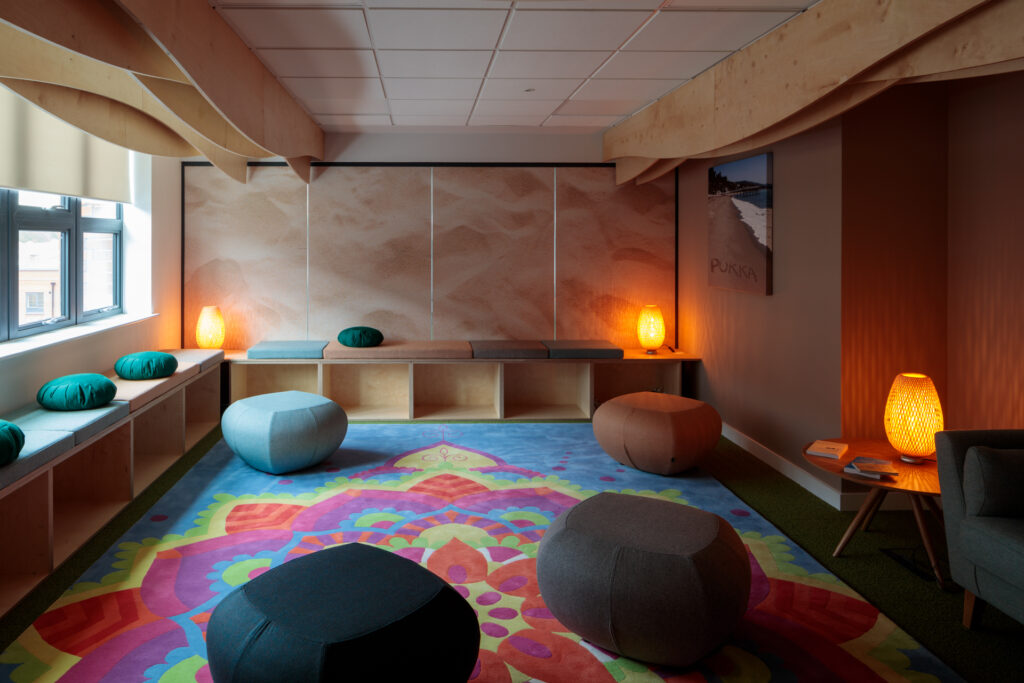
The AI impact
It is no longer possible to ignore the present and future impact that AI is having on the way we work. Artificial Intelligence is evolving rapidly, and those who fail to adopt will get left behind. Within workplace consultancy we’re also seeing how it will impact on how we design our workspaces. From intelligent desk and room booking systems, to sensors that adjust lighting and temperature, it’s important to stay up to date with the latest improvements in AI technology to ensure we remain current with our thinking and designs.
Digital-first designs
With hybrid and remote work here to stay, digital infrastructure is always a top priority in our workplace consultancy research. Offices must be fully connected, or you risk disgruntled colleague. Seamless AV, reliable Wi-Fi, and booking systems are all key considerations when upgrading your office.
Aligning needs: Employers and employees
Ultimately, workplace consultancy helps to align the needs of the business with the needs of their employees. Our strategically minded consultants work with all levels of the business from senior leadership through to employees, to help organisations uncover what their people want. Whether it’s flexibility, recognition, autonomy or community, our insights into all aspects of your organisation allow us to match that with their business priorities. The result? A workspace that enables everyone to thrive.
Ready to transform your workplace?
Want to see our Workplace Consultancy team in action? Check out our work with Yorkshire Building Society and BNP Paribas Personal Finance. For more, download our Workplace Consultancy offering here and find out how our team of workplace consultants can uncover what your people truly need to thrive in the workplace.
See how we could help with your new office interior design or office design and build project here
Get in touch
We love nothing better than talking all things workplace and design – got a question, potential project or just need some guidance?
Drop us a note…


